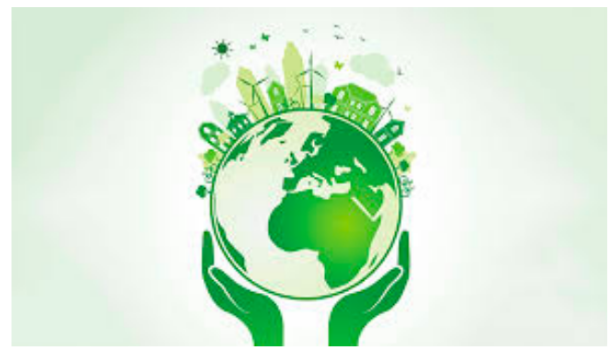Answer:
Approach:
- Introduction: Start by defining the Environmental Impact Assessment (EIA) and its fundamental role in integrating environmental concerns with developmental activities.
- Body:
- Discuss the roles EIA plays. Support these roles with examples to show EIA’s strength in environmental protection.
- Highlight the issues within the EIA process, providing relevant examples.
- Address the criticism of EIA overlooking socio-economic impacts on communities, using instances like the Sardar Sarovar Dam.
- Suggest improvements in the EIA process to overcome the identified challenges.
- Conclusion: Conclude on a hopeful note, indicating that enhancing the EIA framework would lead to robust environmental protection and societal well-being.
|
Introduction:
Environmental Impact Assessment (EIA) is a critical tool used globally and in India to gauge the potential environmental consequences of proposed developmental and industrial projects. Instituted under the Environment Protection Act of 1986, EIA in India seeks to harmonize economic development and environmental protection by informing decision-makers of potential environmental outcomes.
Body:
Effectiveness of EIA in Environmental Protection:
- Identification of Environmental Risks:
- EIA processes involve a thorough analysis of potential threats a proposed project may pose to its surrounding environment.
- For instance, the assessment for the Tehri Dam project extended concerns about deforestation and seismic activities. By forecasting adverse effects, mitigation strategies can be developed in advance.
 Public Involvement and Transparency:
Public Involvement and Transparency:-
- EIA mandates public hearings, providing local communities a voice in project planning.
- For example, in the case of the POSCO steel plant in Odisha, where local concerns about land rights and environmental degradation were brought to the forefront, although the project eventually faced cancellation due to various reasons including environmental concerns.
- Mitigation of Ecological Damage:
- Through EIA, projects are often modified to reduce environmental harm.
- The Narmada Dam project underwent several alterations advised through EIA processes to minimize ecological imbalance, though it also faced substantial opposition over displacement issues.
Challenges and Societal Concerns:
- Questionable Objectivity:
- EIA reports in India are often prepared by agencies hired by the project proponents, leading to conflicts of interest.
- Instances like the approval of vast stretches of mining projects in ecologically sensitive zones have been criticized for inadequate and biased assessments.
- Bypassing Regulations:
- Several projects, especially in sectors like real estate, have been accused of flouting EIA norms, leading to illegal constructions on ecologically fragile land, exemplified by the illegal apartment complexes in Kerala’s Maradu municipality, which were later ordered for demolition by the Supreme Court.
- Inadequate Implementation and Follow-up:
- Post-clearance monitoring is often lax.
- For instance, the industrial disaster in the form of gas leakage at the LG Polymers plant in Vishakhapatnam raised questions about the robustness of the EIA process and subsequent enforcement of safety protocols.
- Overlooking Social Impacts:
- EIA sometimes underestimates the socio-economic impacts on communities.
- The land acquisition and displacement associated with the Sardar Sarovar Dam on the Narmada river, despite its EIA, led to significant socio-cultural disruption for local tribes, showcasing a need for comprehensive social impact assessments.
Way Forward:
- Ensuring unbiased, scientific, and comprehensive EIA reports by involving independent agencies.
- Strengthening post-clearance scrutiny to ensure adherence to environmental safeguards.
- Integrating Social Impact Assessment (SIA) with EIA for a holistic understanding of a project’s implications.
- Mandatory inclusion of climate change impact in assessments, given the increasing relevance.
Conclusion:
The EIA process, a cornerstone in environmental governance, plays an essential role in sustainable development. However, its efficacy has been hindered by various operational, regulatory, and enforcement gaps. While EIA has certainly contributed to averting several potential environmental degradations, its true potential is yet to be realized in India. Strengthening the EIA framework with stringent regulations, ensuring its impartial and holistic application, and enhancing public participation and transparency would not only protect the environment but also uphold the socio-cultural sanctity of the society affected by developmental projects.
To get PDF version, Please click on "Print PDF" button.
 Public Involvement and Transparency:
Public Involvement and Transparency:
https://uploads.disquscdn.com/images/88fc1aecc72cdeb8a6e6a7d30d04e473037ace3da9eed1cc973b7089f64f6a51.jpg https://uploads.disquscdn.com/images/a1ed69a88aa97e38c5e31bbc6b2c21f2a30fbb8eae23b8d287d916ffa287f165.jpg https://uploads.disquscdn.com/images/0a3088176806ff140b1702c88fbc641ae04778325a145f8447d9eec42240ee22.jpg
https://uploads.disquscdn.com/images/3eeabdd8e909f507bd6d7abd0568bb7f571f62cf26dd04b21504a2f4f9bfd5b4.jpg https://uploads.disquscdn.com/images/7f82f78b90c96228edd1676680273d743628ef9f6430cedd2b272ea7341733a5.jpg https://uploads.disquscdn.com/images/abbc51ca47f05909da349727ffa594e4419e6e2040217d7abec5a124b3b1b248.jpg
https://uploads.disquscdn.com/images/3036910650a1878d581c9fc0b2268d8a6cdcfd4c0f1f3dd07b5e4b67efdf2bc8.jpg https://uploads.disquscdn.com/images/036eed42d43db8f0d2f7794e3c26e6a2b59780743dc9e8a49e7d5c091d7b7af8.jpg https://uploads.disquscdn.com/images/da5bf8f6cf31c1e1d82f917cb667393c72f5240bcc3512964fb30e7cab06ab69.jpg
https://uploads.disquscdn.com/images/4728b1f6335c50eb4f2554a7ebf8b8b2a92098340e9844f0d5e09c1d6058011d.jpg
https://uploads.disquscdn.com/images/65375eeb519785cf74208130be445e7e7e93573bd6012a81980cdbd53bb690bc.jpg
https://uploads.disquscdn.com/images/aeef80c506fc0bfb3420e0e6b25d2b8b5f55d379befd2673ef76d82ef2e3bb4a.jpg https://uploads.disquscdn.com/images/d69a865f41c50adaa113adc2d05dd66edac73fe38e6f0d1d7a420d62a90ba77b.jpg https://uploads.disquscdn.com/images/6999368032cbd350fb2e2c9faec771f003025fd53725527ad824469bdabc2115.jpg
https://uploads.disquscdn.com/images/92beb1aa0919c9fd6933aba0f3b9ed265bde2281750ff6a9688382a9a75f1cfa.jpg https://uploads.disquscdn.com/images/580f4f36aeec0470f75a155bd433f1f8cfc4794680cabb95595d3bd9a20a37f8.jpg https://uploads.disquscdn.com/images/944f75fedee5d584d492f09b0da0cfa2c96e76143c413a456df5446c9a4e1a1f.jpg
https://uploads.disquscdn.com/images/23550b0269d8acda82188aa1e9933cc7d87b09833eca075e76857885d80d5748.jpg https://uploads.disquscdn.com/images/829aba2b465d6a2703aed9c02993f4eb623af09d11943c17d49e60b313c9727b.jpg https://uploads.disquscdn.com/images/9a07ef36fe76a4c8e130566362fe20102f2d50e70f1a244297e11dc70aa52a9b.jpg
https://uploads.disquscdn.com/images/18320ed2bd9b78b8fefd9d180c07214d0f246b0367dc96c0175197e8b6ded513.jpg https://uploads.disquscdn.com/images/605a8e61681864d6d3f0d863788ec0b3b54a412b84c20cc96cbb489030ac36d5.jpg https://uploads.disquscdn.com/images/4caeadd94d52c4728c2b7d227388c9c33426e557d20b3a9e4918ee34fbc67cda.jpg
https://uploads.disquscdn.com/images/503ae596832bf46aec0f41b893050b72da5a8f910e5669dae1e19866344830e6.jpg https://uploads.disquscdn.com/images/996c7e4530473ee097a6848bc4f615e1e5bb61bc496042e91c0655313375cc5c.jpg https://uploads.disquscdn.com/images/7c231d61595deaeec4138b2141978874f6ac5ac0dbc82020c9a94bd89110e934.jpg
https://uploads.disquscdn.com/images/cbcc2e36dadb4a21b0093dafbddb8299caf692fb42441ef5f05f1eeab11cae4e.jpg https://uploads.disquscdn.com/images/05bd7a67d41e644dc8fe414af5d75747019718bff7c499f79bcd7c1a56070ce2.jpg https://uploads.disquscdn.com/images/d07b4d9f9e7328fb9194915dff93ef29dbd72c573492231a4061270ff1bbb6b0.jpg
Thank you sir
https://uploads.disquscdn.com/images/3057005c05d0f1b8df8a60d66300004b82de58a94998be376f5a7be715867442.jpg
https://uploads.disquscdn.com/images/f8ca3d0fa6e4b137c5794ed9eafed6330da12e8732ee8e49ff609491d0de0ff7.jpg
https://uploads.disquscdn.com/images/c898c227aef9a3151c3efd1107521764c23c36dbc1611f04a83a7ccbbd6c2eeb.jpg https://uploads.disquscdn.com/images/37535928fe0698746e0c4938cb6ad35a1cd33b988faee80ea844fcff9975cc11.jpg. test